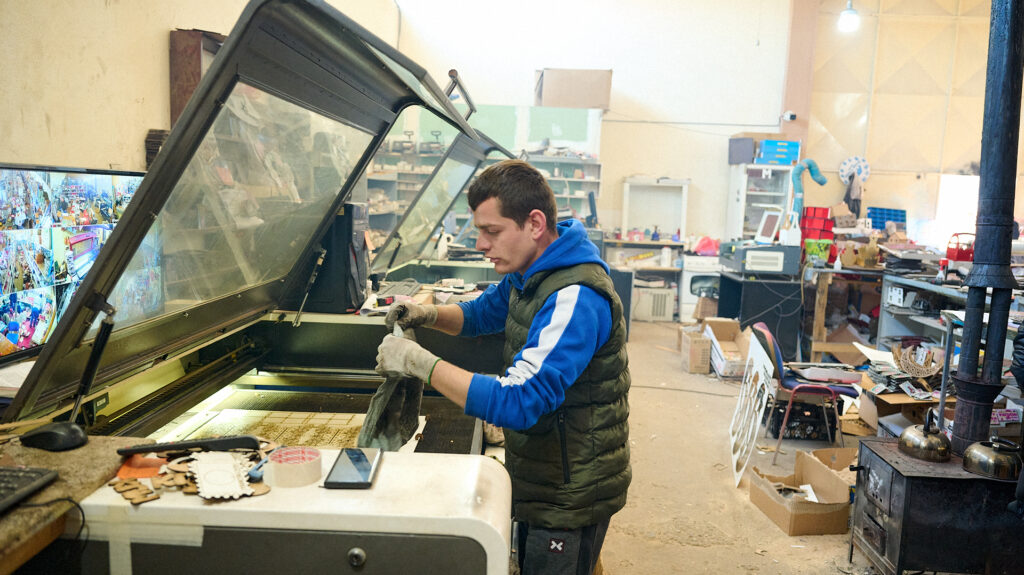Hard-working and always smiling, Ismar Ramović is a worker that every employer would like to hire – this is how Nebojša Milikić describes Ismar from Tuzi, who works for his company.
Ismar waited for a job for almost three years after he had finished his schooling. Today, he is one of ten people with disabilities who are employed in this company, where he makes souvenirs.
“I like working with machines. We make boxes, baskets, magnets. We cut them, then assemble them. It’s nice at work, because I feel at home”, Ismar says.
To be able to exercise his rights and get the opportunity to work, Ismar had to go through long and complex procedures, just like other people with disabilities. In addition to the medical one, Ismar had to show up before two other disability assessment commissions.
“I am anxious when I go to meet those commissions. I’m worried because I don’t know if they will approve my allowance”, he says.

With the help of the Reform of the National Disability Assessment System project, funded by EU and implemented by UNDP in partnership with the Government of Montenegro and NGOs, disabilities and needs of all people with disabilities will be assessed in one place. The procedures will be simplified and more than 30 different commissions will be abolished.
The aim of the reform is to help people with disabilities exercise their rights in a more equitable manner. The medical model will be replaced by a human rights-based disability assessment model. This means that more than 50,000 people with disabilities in Montenegro will exercise their rights more easily, with considerably fewer administrative procedures.

“I wish I could finish everything in one place and not wait. I don’t like crowds and waiting,” Ismar says.
People with intellectual disabilities in Montenegro are often not understood, supported and accepted by the society, but that is not the case with Ismar. “I hang out with colleagues at work, and after work we go for coffee. Sometimes we play football or basketball,” he adds.

As his employer Nebojša explains, Ismar has made a lot of progress and has fit in.
“He contributes to himself, our company and to the entire society with his work and results. The contribution of remaining 15 employees is not bigger than that given by Ismar and other people with disabilities who work here”, Nebojša adds.
The state offers benefits to employers if they employ people with disabilities, by subsidising salaries and funds for workplace adaptation.
“It is important to adjust the tasks to their abilities, and then success is guaranteed. I would encourage all employers to follow my example and employ people with disabilities. I am sure they will not regret it”, Nebojša said.
Article, photo and video source: undp.org
